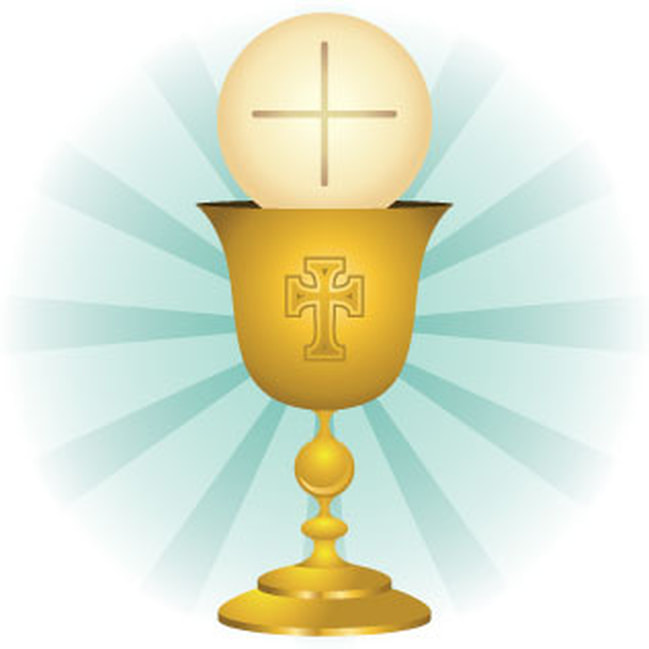 artwork courtesy of St. Elizabeth Ann Seton Parish, Northampton, MA A history lesson from Father Curtis, my parish priest: “This Thursday is the feast of Corpus Christi. It is a beautiful Mass composed by St. Thomas Aquinas in the wake of the heresy of Berengarius, who lived in the eleventh century. It is remarkable that the Holy Eucharist went a thousand years without a serious heresy threatening it directly, and no less so that the error of Berengarius, nearly alone among heresies, found almost no traction among the men of the age.” Curtis said, “The faithful reacted vigorously in defense of the Blessed Sacrament, which they loved; this era saw the advent not only of the feast of Corpus Christi, but also the major elevations at Mass at the consecration, Eucharistic processions, and other pious acts of devotion toward Our Lord present in the Most Holy Eucharist.” Wikipedia excerpt: Berengar of Tours, in Latin Berengarius Tuornensis, was an 11th-century French theologian and archdeacon of Angers, a scholar whose leadership of the cathedral school at Chartres set an example of intellectual inquiry through the revived tools of dialectic that was soon followed at the cathedral schools of Laon and Paris. He came into conflict with Church authorities over the doctrine of transubstantiation, instead arguing for a more spiritual presence. He confessed his error twice, in 1059 and 1079, and died in union with the Church..
0 Comments
Leave a Reply. |
Categories
All
Archives
July 2024
|
 RSS Feed
RSS Feed